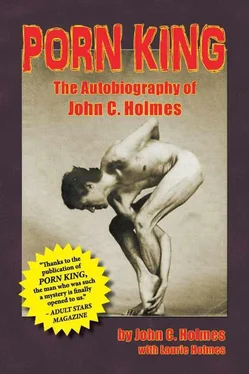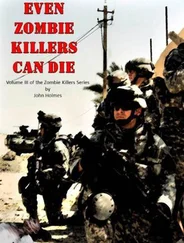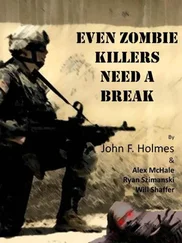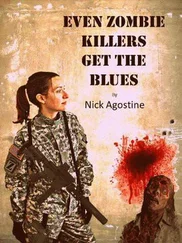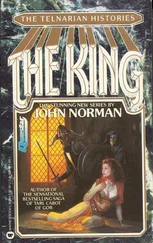From the outside, “The Project” looked like a prison: barren, cold, uninviting. It didn’t get any better on the inside. The rooms were minuscule, dreary little cubes with cardboard walls and squeaky wooden floors, insufficient lighting, and provide-your-own heating. In winter, temperatures within dropped so low that spilled milk froze before it could be mopped up. On hot summer days, the vile smell of uncollected garbage became so overpowering that even the flies wanted out.
The first six years of my life were spent in a cramped two-bedroom “apartment” (for want of a better word) in The Project. Eddy, Ann, and I shared one bedroom. Mother and Father, whenever he showed up, shared the other. Being the oldest, and most responsible of the children, William was assigned his own private domain, a corner of the living room next to the kitchen partition. By concentrating the needy and homeless within a few square blocks, the city officials must have figured they could keep a closer watch on the troublemakers. It didn’t quite work out that way. Crime in the streets did drop, but incidents within the housing project began to mount. In effect, The Project became a war zone complete with race riots, stabbings, beatings, and occasional flying bodies tossed from upper floor windows. Human screams mixed with wailing sirens of police cars and ambulances, which arrived and departed, were heard with frightening regularity. There weren’t many quiet moments. Most of the trouble took place during day light hours when the adults were away, either at work, wandering around looking for work or, in my Father’s case, scrounging drinks. (Even the ones who had no ambition whatsoever had enough smarts to break away whenever possible.) From 8:00 in the morning until 6:00 at night, the entire Project was literally run and owned by children—gangs of rowdy, street-smart punks who’d rather crack heads than baseballs. One of their favorite pastimes was throwing darts—not at dartboards, but at other kids. When I was four years old they had me running through passageways and dodging darts until Eddy, who was then fifteen years old, came to my rescue. He got in a couple of good licks, which gave me time to get away, but he paid a price. They pummeled him so thoroughly that he was black and blue for a week.
Mother had always been a very attractive woman. Not beautiful, but striking. She had a strong face, with high cheekbones, large eyes, and full, dark brows, framed by a mane of deep brown hair. Every time I see a Joan Crawford movie I think of my mother. It is to Mother’s credit that she maintained her good looks despite all she’d been through. Living with an alcoholic while raising four kids couldn’t have been easy on her. But there were added pressures. As Dad’s condition worsened, he began drinking away his earnings and the support of the family fell on Mom’s shoulders.
Mother had worked before, but never had her situation been so desperate; never had so many people depended on her. She got a job in a small restaurant where she waited tables and worked the counter and cash register. We lived off her tips. Eventually, she was promoted to manager.
Mother was at work when dad disappeared. I can’t recall his leaving, only that he was there one day and gone the next. He left without saying a word to anyone. Not even a good-bye. It took a few days to sink in that he was really gone; we were so used to his not being around. Mother cried a little; God knows why. I guess after all they’d been through together she couldn’t help but miss him. No one else did. From then on, for the next year anyway, it was just Mother, my brothers and sister, and I. Then, an astounding thing happened; astounding only because it came as such a surprise. Mother began seeing another man. She wouldn’t admit it, at first, but we knew. There were too many references to somebody named Harold.
Mother dating? How did this person come into her life? She was home every evening and went to work every day. Where did they meet? It was heavy stuff for a six-year old to try and understand. William, Eddy, and Ann couldn’t come up with any answers, either. The most logical explanation, on which they all agreed, was that mother had met Harold at the restaurant, where, over lingering cups of coffee, their relationship began to gel. Still, we didn’t know for sure and Mother wasn’t talking.
One evening, Mother arrived home following an eight-hour shift, looking as fresh and relaxed, and indeed, reborn. as if she really was Joan Crawford and had just come from makeup. She normally headed straight for bed, but this time was different. “Come on, kids,” she said, eagerly motioning us to her side. “Where do I begin?” She sighed, “How do I tell you about Harold?”
I had a feeling this was going to be big. I looked at my brother and sister, but they were concentrating on mother, waiting to hear more.
“Let’s see,” she began slowly, “You remember hearing me mention Harold, don’t you?” Heads nodded. “Well, he’s a wonderful man, a very handsome man, as tall as Grandpa Barton but much bigger”—she held her hands out wide—“and so smart. He was a communications expert during the war and now he works for the telephone company. Harold has an excellent job and he makes good money. A lot of money, actually, but it hasn’t spoiled him. He’s very stable and sensible and down-to-earth. I know you’ll like him very much.”
“What does that mean?” William asked.
Mother smiled again, a coquettish smile I hadn’t ever seen her display before. “Well, it means he’s asked me to marry him,” she said, pacing her word, “and I’ve accepted.”
“Marry him?” Ann repeated.
“Yes, dear,” Mother said. “I hope you’re all happy for me.”
“What about Daddy?” I piped up.
“Your father’s gone,” she answered quickly, her expression turning icy.
“But what if he comes back?”
“He won’t be coming back because we’re no longer married. I told you that, John, don’t you remember?”
I didn’t, not that it made any difference. At that age I wasn’t quite clear about divorce, let alone marriage. As it turned out, Mother wasn’t letting us in on her secret to gain our approval. It didn’t matter that Eddy supported her, which he did, or that William disapproved, which he did, or that Ann and I were confused, which we were. Mother had already made up her mind to marry Harold. She did find a way of gaining our full backing, however, by simply telling us that Harold had promised to buy her a house in the country, and that we’d be leaving The Project.
Harold kept his word. He bought a beautiful, white two-story frame house in a farming community midway between my grandparent’s place and Columbus. It was one of the nicest homes in the area, and a big step up for Mother and her brood. Instead of being surrounded by brick and concrete, we had woods and creeks, open lands, and clean, sweet-smelling air.
It didn’t take us long to adjust to our new outdoor way of living. Mother and Ann started a huge garden—we had an acre to play with— planting flowers, fruit trees, and endless rows of vegetables that would one day wind up as jams, jellies, and relishes. My brothers taught me to hunt. The woods and fields were alive with rabbits, squirrels, pheasants, and deer. I also learned how to set trap lines. In the wintertime, as I grew older, I set lines for mink, beaver, and possum. I’d often wake up at 2:00 a.m. to clear the traps, skin the animals, and salt and stretch the pelts before going to school. I’d run more lines in the afternoon on my way home.
My brothers and I caught so much game that Harold had to buy a freezer. It was a massive thing, and so was the price tag that came with it. But Harold didn’t complain. He was everything that Mother had described him to be—and a little bit more. It was the “extras” that caused Harold’s stock to nose-dive in everyone’s eyes but Mother’s. Harold had misrepresented his finances. Either he wasn’t as well off as he’d claimed to be or he’d over extended himself with the move to the country, or both. One thing was certain—his income fell short of what he needed to pay off the big house and support a large, ready-made family. As a consequence, we were forced to fend for ourselves whenever we needed anything.
Читать дальше
